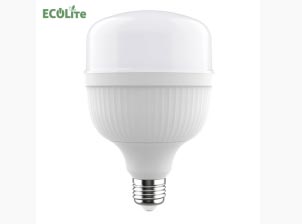
What does LED stand for in light bulbs?
What is an LED?
LED stands for Light Emitting Diode. This term encapsulates a cutting-edge technology that offers numerous advantages over traditional incandescent and fluorescent lighting. Let’s break down the components of this acronym:Light Emitting
Unlike conventional bulbs that generate light by heating a filament until it glows, LEDs produce light through a process called electroluminescence. When an electric current passes through a semiconductor material in the LED, it emits photons, producing light. This method is far more efficient and produces minimal heat.
Diode
A diode is a semiconductor device that allows current to flow in one direction. In an LED, the diode is crucial because it ensures that the electric current flows properly, enabling the light emission process to be controlled and efficient.
Why Choose LED Bulbs?
LED bulbs have rapidly gained popularity due to their numerous benefits. Here are some key reasons why you should consider switching to LED bulbs:Energy Efficiency
LED bulbs are highly energy-efficient, using up to 80% less energy than traditional incandescent bulbs. This efficiency translates into significant cost savings on electricity bills, especially in applications where lights are used extensively.
Longevity
One of the standout features of LED bulbs is their longevity. A typical LED bulb can last between 15,000 to 25,000 hours, outlasting incandescent bulbs many times over. This means fewer replacements and lower maintenance costs.
Environmental Impact
LED bulbs are environmentally friendly. Their reduced energy consumption means lower greenhouse gas emissions. Additionally, LEDs do not contain harmful substances like mercury, which is found in some other types of lighting.
Quality of Light
LED bulbs offer superior light quality. They come in various color temperatures, from warm to cool, and provide excellent color rendering. LEDs can also be dimmed, giving you control over the ambiance of your space.
Durability
LED bulbs are robust and can withstand shocks, vibrations, and extreme temperatures better than traditional bulbs. This makes them suitable for a wide range of applications, from household use to industrial environments.
Applications of LED Bulbs
LED bulbs are versatile and can be used in numerous settings:
Residential Lighting: From living rooms to kitchens, LED bulbs can provide efficient and high-quality lighting throughout your home.
Commercial Lighting: Offices, retail stores, and other commercial spaces benefit from the energy savings and long life of LED bulbs.
Outdoor Lighting: LEDs are ideal for street lighting, garden lights, and other outdoor applications due to their durability and brightness.

